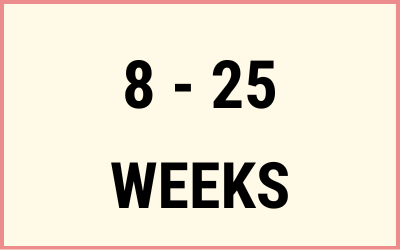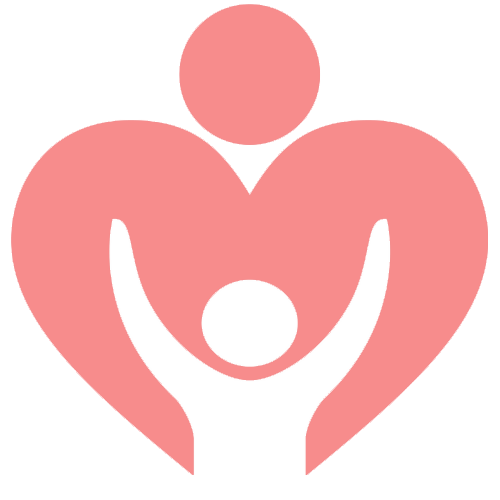Many expectant mothers notice that the condition of their hair improves during the gestation period. This is one of the positive symptoms of pregnancy that all women undoubtedly like. Hair becomes more attractive and grows quickly. The reason for these changes is hormonal changes.
Fast growing hair is not an indicator of pregnancy, it only accompanies it. Hair growth is determined genetically and these inherent mechanisms are violated only during the gestation period. The blood flow increases, and the level of female hormones increases, which leads to external changes in the derivatives of the epidermis.
When Does Fast Growing Hair Start in Pregnancy?
A noticeable improvement and rapid hair growth can be observed already in the first trimester. Estrogen levels rise during this period. This leads to active growth and thickening of the hair. They fall out less and become more elastic. Most of the hair grows towards the end of the second trimester. The maximum added length in the absence of a haircut can reach up to 15 cm.
EXACT WEEKS IT MAY HAPPEN
Activation of hair growth can begin as early as after the 8th week of pregnancy. Women in position note fast-growing hair at the 25th week. The condition and growth of hair remain at the same high level in the third trimester. Hair is shiny, smooth, and silky. Hair can grow spasmodically by bursts of hormones.

When will it end?
Active hair growth slows down slightly after about the 25th week of pregnancy. There is no longer that noticeable difference in length and the stability of hair changes are maintained. They don’t stop growing completely. It’s just that the level of estrogen decreases markedly and this returns the usual growth rate of epidermal derivatives.
How Does it Feel?
Rapid hair growth during pregnancy is immediately noticeable. Most women stop having their hair cut according to their prejudices. This makes the visual increase in length even more visible. Hair can grow from 2 to 2.5 cm per month. This most often happens gradually and evenly.
Acute
Activation of hair growth in an acute form affects not only the head. A woman notices the presence of hair on her stomach, arms, and even her face. These are small fluffy hair that is slightly brighter and longer than usual.
Mild
In a mild degree, thickening of the hair and their more intense growth are observed. The process does not proceed abruptly but evenly. There is a noticeable increase in length up to 10–15 cm during the gestation period.
The growth and condition of the hair of a pregnant woman are not indicators of the health of the fetus.
Features of hair care during pregnancy
It is not necessary to radically change hair care after the onset of pregnancy. It is necessary to be more attentive to the selection of cosmetic and care products, to avoid aggressive chemicals and unsafe hair procedures. Visit the hairdresser at the same frequency as before pregnancy. The main features of hair care during pregnancy:
Selection of hygiene products
The work of the sebaceous glands changes during pregnancy. This often leads to an increase in the oiliness of the scalp and hair. A more careful choice of care products is required in such a situation. If your usual shampoo was for dry scalp, then it is better to replace it with a remedy for oily hair.
Minimize the use of chemicals
Limit your hair care products to 2-3 tubes. Let it be a shampoo according to the type of hair, a conditioner, and a mask. This is enough for complete care. Opt for paraben-free products. Choose scent-neutral or natural shampoos and conditioners.
Haircut and Coloring
These two procedures are not prohibited during gestation. Many women refuse them considering it is harmful to the child. Pregnant women do not get a haircut due to the presence of prejudices and superstitions. You can and should cut your hair at the pace that it was before pregnancy. This will keep their quality.
Coloring is also not prohibited. You just need to choose gentle methods: ammonia-free paints and natural compounds. Be sure to do an allergy test.
Why Does it happen during Pregnancy
The body of a woman during pregnancy produces an increased amount of hormones. The condition of the hair is most affected by progesterone and estradiol. The latter is a type of estrogen. The life cycle of the hair changes under the influence of estrogen. It slows down, resulting in less shedding and faster growth. Hairs that are in the resting stage do not fall out at a predetermined time.
The level of the male hormone androgen rises at the beginning of pregnancy. It can provoke strong hair growth and thickening. Good nutrition and vitamin intake also directly affect the condition and growth of hair. Many women take a course of prenatal vitamins to enrich their bodies. Future mothers are more attentive to nutrition. They prefer cereals, berries, fruits, and greens. It improves the condition of the skin, hair, and nails.
What to do if hair grows too fast
Fast-growing hair should not cause any discomfort to women in position. If you have always worn short haircuts, you should not refuse them. Too accelerated hair growth is not so common. Women are generally very satisfied with their pregnancy hair. If they interfere or take a lot of time to care, think about how to help yourself. What to do if hair growth is too strong:
Check your hormone levels
This is necessary for abnormally strong hair growth. Such a symptom may indicate an excess of the permissible level of certain types of female or male hormones. Hormone control is essential if you notice excessive hair growth on your head and body. It can be small hairs above the lip, on the abdomen, or the arms.
Regular haircut ends
Do not believe in superstitions and cut off part of your hair every month. It is necessary to remove the length by at least 1 cm. This will allow you to get rid of split ends and adjust the length. Do not suffer if it becomes difficult for you to comb, wash your hair, and style it. You can cut them to an acceptable level.
Remove the extra source of vitamins
You likely have enough rational and enriched nutrition. Vitamins can backfire. Consider stopping prenatal vitamins if your baby’s developmental signs are normal. Excess vitamins can be bad for your health. Hair will be beautiful but allergies or kidney problems will appear.
WHEN TO CONTACT A DOCTOR?
It is better to consult a doctor about an increase in the hairline, not only on the head but also on other parts of the body. Increased hair growth all over the body indicates abnormal growth of stimulating hormones. It is recommended to consult a doctor if the increase in length is accompanied by severe hair loss. This happens with a lack of estrogen and problems with the skin of the head.
What Not to Do
Fast growing hair should not bother you in any way. This is a common positive pregnancy symptom. The condition of the hair, its structure, and even loss do not affect the health of the baby. Do not suggest to yourself that something is wrong with you or that you have problems with internal organs. What is not recommended for fast hair growth:
Chemical procedures
Refuse scalp peels, perms, hair lamination, and other aggressive procedures. Avoid any contact with excess chemicals.
Restrict nutrition
Do not think that your hair will return to its previous rhythm of growth by removing some food. Diet and food restrictions can harm the health of the child.
Refuse haircuts
Visit the hairdresser as before. Cutting hair does not affect your child’s health in any way. You need to take care of your hair under any conditions.












